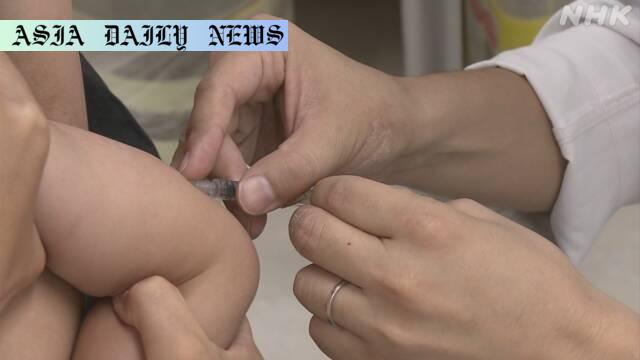vaccine shortage, Measles-rubella vaccine scarcity impacts child vaccination programs due to unstable supply and delivery issues.
A survey reports vaccine shortages in Japan affecting measles-rubella immunizations.
48% of pediatricians face shortfalls, impacting child vaccination programs.
Pediatricians warn outbreaks could occur if supply doesn’t stabilize.
Pharmaceutical issues and government measures are central to this issue.

Introduction to Vaccine Shortage in Japan
Japan is currently grappling with a concerning shortage of the combined measles-rubella vaccine, creating significant challenges for healthcare providers and patients alike. This shortage threatens childhood immunization schedules and raises concerns about potential outbreaks of these dangerous diseases. Both measles and rubella are highly contagious diseases that can be fatal or cause long-term health complications if vaccination coverage declines.
Current Impact on Pediatric Healthcare Providers
A recent survey conducted by the Japan Pediatric Association highlights the gravity of the situation, revealing that 48 percent of pediatricians are undersupplied with the vaccine. Among them, 22 percent have barely half the required doses, and an alarming 5 percent have no doses at all. These shortages are forcing healthcare providers to make difficult choices, including limiting booking numbers for routine vaccinations and even temporarily halting appointments entirely in some cases.
Consequences for Childhood Immunization Programs
This vaccine is crucial for protecting children from measles and rubella, with Japan’s vaccination schedule requiring the first dose at age 1 and a second dose before starting elementary school. According to the survey, 46 percent of pediatricians reported struggles with inoculations specifically for children aged 5 and 6. Experts warn that this shortage could lead to lower vaccination rates and therefore an increased risk of outbreaks within communities. If vaccination coverage dips below the necessary threshold for herd immunity, the health of entire populations, especially vulnerable groups, could be jeopardized.
Causes of the Shortage
The root cause of this disruption appears to lie in manufacturing problems experienced by certain pharmaceutical firms, resulting in restricted or suspended shipments. Since last year, vaccine supplies have been increasingly erratic, and the issue remains unresolved despite heightened public demands. This underscores the complexity of vaccine production and distribution, particularly during times of heightened global demand due to other public health challenges such as the COVID-19 pandemic.
Government Actions and Future Projections
The Japanese health ministry has assured the public that vaccine supplies are expected to stabilize soon as other pharmaceutical manufacturers step in with expedited shipments. However, they advise individuals seeking vaccination to contact healthcare providers proactively, given the current constraints. Experts and healthcare professionals alike are urging the government to implement stronger measures to prevent future shortages and ensure timely distribution of vaccines nationwide.
Potential Public Health Implications
The ramifications of a prolonged vaccine shortage can be profound, leading to a risk of disease resurgence. Both measles and rubella can have devastating health outcomes, particularly for unvaccinated individuals. The current crisis serves as a stark reminder of the delicate balance maintained in achieving herd immunity. Without immediate and coordinated efforts to resolve this shortage, public confidence in routine immunization programs may erode further, leading to long-lasting disruptions in public health.
Conclusion
In conclusion, the measles-rubella vaccine shortage in Japan is an urgent public health issue that requires swift and coordinated action. While the government has pledged improvements in vaccine availability, healthcare providers remain under strain, and the risk of outbreaks looms large. Enhancing vaccine production infrastructure, streamlining distribution processes, and maintaining public trust in immunization programs are critical steps for safeguarding Japan’s future health outcomes.
Commentary
The Critical Need for Vaccine Availability
The vaccine shortage in Japan is a sober reminder of how critical reliable vaccine production and distribution are to global health systems. The measles-rubella vaccine is a cornerstone of childhood immunization schedules, and any disruption can have cascading effects on public health. This shortage not only impacts the targeted age groups but also indirectly raises the risk for populations as a whole, underscoring the vital importance of herd immunity.
Implications for Healthcare Providers and Families
It must be incredibly frustrating for pediatricians to face such severe supply constraints. This situation leaves healthcare providers in a difficult position—balancing the urgent needs of their patients with the limited resources available to them. The families of young children, especially those approaching the required ages for vaccination, undoubtedly face significant anxiety about ensuring their child’s protection in a timely manner. The conversation around vaccine prioritization during shortages also raises important ethical questions about fairness and accessibility.
Learning from the Crisis
While unfortunate, this public health issue presents an opportunity for Japan to modernize its vaccine production and supply strategies. Diversifying suppliers, investing in domestic pharmaceutical capabilities, and fostering global cooperation can be long-term solutions to avoid future disruptions. Furthermore, this episode highlights the critical importance of transparent communication between governments, healthcare providers, and the public to maintain trust and minimize panic during shortages.
Final Thoughts
Ultimately, resolving this vaccine shortage must become a top priority for Japanese authorities. Swift government interventions to stabilize the supply chain and increase production capacity are essential steps. At the same time, public awareness campaigns can help manage expectations and ensure that the population continues to prioritize vaccinations when they become available. By learning from this challenge, Japan can strengthen its healthcare infrastructure and set a global example for handling vaccine shortages effectively and compassionately.


